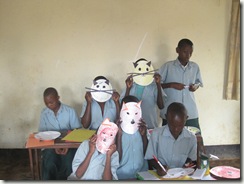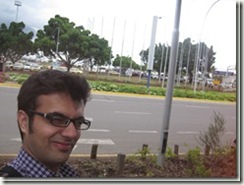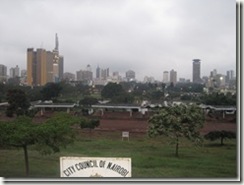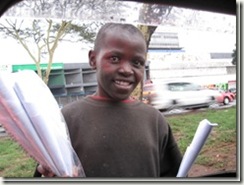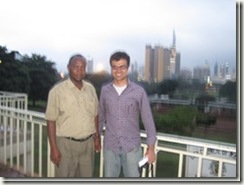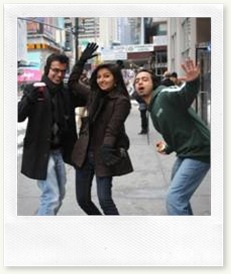Project Rwanda 4: The Teaching Experience

I met Darbi Roberts (The Student Development Coordinate at CMU-Qatar) today to tell her all about the trip, and I realized that there was so much to talk about. I therefore decided to document my teaching experience, for myself and for others interested in getting involved with OLPC.
Shedding Inhibitions:
Josh told us that the students were going to be a bit shy, but they turned out to be more responsive than expected. Nevertheless, Ice breakers were important to get the students comfortable with us and show them that we’re their friends rather than their teachers. Our team played ‘Simon Says’, but since the students and our translator had trouble saying ‘Simon", we changed the game to ‘Sam Says’. This is just one of the many ways we adapting our activities to suit the students.
Some things are better left untouched…
We realized was that the kids knew so much more than they showed. I remember in the beginning we asked the translator to ask them simple questions like "What just happened in the skit?" and no one would answer. We were initially disappointed because we would get blank, scared faces. However, our translator came up with the idea of pointing to a student and asking him/her to answer the question. This was something that we were initially not comfortable with, but it worked. Perhaps the "modern" solution of not singling a student out isn’t universally the best. We all made it to a point to realize that the school had opened it doors not to change their teaching methods, but to enhance them. This involved us being sensitive to the traditions of teaching followed by the school.
Spontaneity:
I remember how I overslept for one of the lesson planning and Ariel, who was the only one up on time, ended up whipping a plan from the top of hear head. What was funny was that the lack of confidence we had in our not-so-planned lesson plan became our strength. We were more open to modifying what we wanted to do in those 50 minute slots according to what we deemed necessary. For example, the ice breakers, which was initially just one round of making expressions without sounds, was changed to a two round ice breaker where the second round involved everyone performing the same actions as the selected student. This exercise not only gave the students confidence when they were doing silly actions, but also created a more trusting environment.
Open-Endedness:
One aspect that I really appreciate about the OLPC applications is that they are very open-ended in nature. This means that they leave large room for creativity, making them interesting for students and instructors alike. For instance, our record program was just a webcam application that allowed taking pictures and videos. However, our team managed to make it an extremely educative experience for the children, as they were challenged in many dimensions. They were taught the concepts of teamwork, creativity, structure, and perhaps even critical thinking. Teamwork, Creativity and Structure were taught through the skits where the students worked in groups of 2 and 3 and were asked to perform a skit. Furthermore, they were also asked to make masks for their jungle skits.
However, the most interesting aspect that we aimed to teach them was critical thinking. We asked these students to explain why we did "actions without words" and through that, taught them the importance of nonverbal communication and body language and how they transcend the language barriers that we faced.
Lastly, we taught them how to create. These students created their own movies, something that they could give credit to themselves. This is probably their first "creation" and will hopefully encourage them to be enterprising in the future.
Giving them a start…
It was important for us to give the students some scenarios instead of giving them nothing at all. It was their first experience with creating and acting out skits, so giving them complete freedom would have made them completely lost. Therefore, we gave them a template, and then asked them to do whatever they wanted with the stories. The way the changed the stories was mind boggling, and we all realized that they had a knack for comedy! Some of them performed something completely different from the scenarios given, but that was fine as long as they had fun!
Sustainability:
We really hope our efforts become sustainable. However, with the lack of internet at the school, this seems challenging. One thing that I wished we had done was to make the teachers sit in our classes, so that they can learn about laptop integration in the classrooms.
Appreciation:
I speak on behalf of the entire team that we all gained appreciation for the primary school teachers, who work effortlessly and are often underappreciated. Our four days of teaching were so exhausting that we would’ve barely been able to do one more day. This is after being fortunate enough to have extremely disciplined students who gave us very little to complain about.

